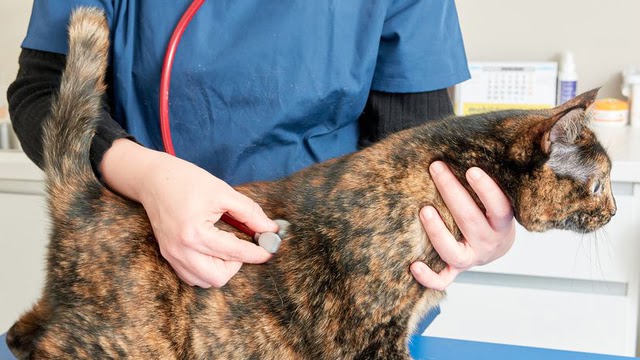Quck answer
If your cat has an abscess, it’s important to seek veterinary care as soon as possible. An abscess is a pocket of pus that develops under the skin as a result of an infection. Treatment typically involves draining the abscess, cleaning the area, and administering antibiotics. Your cat may also need pain medication to manage discomfort. In severe cases, your vet may recommend surgery to remove damaged tissue. To prevent abscesses in the future, make sure your cat’s vaccinations are up to date and keep them indoors to reduce the risk of fights with other animals.
Pets

When your cat is feeling unwell, it can be challenging to identify the problem. One common issue is an abscess, which is a localized infection filled with pus. The body creates a barrier around the wound, trapping the pus inside. Treating a cat with an abscess can be difficult because the symptoms are not always obvious.
Cats usually develop abscesses from bites or scratches, and they can have multiple abscesses at once. The infection occurs when bacteria from the attacker’s teeth or claws enter the skin through the wound. Most abscesses occur around the neck, front legs, tail, or rump. Owners may not realize their cat has been bitten until they notice soft, painful swelling, a foul-smelling discharge from an open wound, lethargy, or a loss of appetite. If you are unsure whether your cat has an abscess, consult your veterinarian before taking action.
To treat a cat with an abscess, follow these tips:
Step 1: Trim the hair around the abscess.
Step 2: If the abscess is draining, move on to Step 3. If not, apply hot, moist compresses to the area for 20 minutes, two or three times a day, until the abscess begins to drain.
Step 3: Clean the area thoroughly with a mild saline solution or warm water two or three times daily. Avoid using any other antiseptics. The compresses will also help prevent scabbing.
Step 4: If your cat stops eating, the abscess does not stop draining foul-smelling material within 48 hours, or the area affected is very large, take your cat to the veterinarian as soon as possible.
В© Publications International, Ltd.
FAQ
1. What is an abscess in cats?
An abscess in cats is a pocket of pus that forms under the skin due to an infection. It can be caused by a scratch or bite, often from another cat, or from a wound that becomes infected. Abscesses can be painful, swollen, and warm to the touch.
2. How do I know if my cat has an abscess?
If your cat has an abscess, you may notice a bump or swelling on their skin, often with reddened or irritated skin around it. The area may feel warm to the touch, and your cat may be in pain or have difficulty moving or walking. If you suspect your cat has an abscess, it’s important to take them to the vet for proper diagnosis and treatment.
3. What should I do if I find an abscess on my cat?
If you find an abscess on your cat, it’s important to take them to the vet as soon as possible. The vet will examine the abscess, drain any pus, and prescribe antibiotics to treat the infection. It’s important to keep the area clean and dry, and to follow the vet’s instructions for caring for your cat.
4. Can I treat an abscess at home?
While it may be tempting to try to treat your cat’s abscess at home, it’s important to seek veterinary care. Draining an abscess can be painful for your cat, and if not done properly, it can lead to further infection or complications. Your vet will be able to provide the necessary care and antibiotics to treat the abscess and prevent future infections.
5. How long does it take for an abscess to heal?
The healing time for an abscess can vary depending on the severity of the infection and the location of the abscess. In general, it can take several weeks for an abscess to fully heal. Your vet may recommend follow-up visits to monitor the healing progress and make adjustments to the treatment plan as needed.
6. How can I prevent my cat from getting an abscess?
To help prevent your cat from getting an abscess, it’s important to keep them indoors and away from other cats that may be aggressive or carry infections. Regular grooming and checking for any wounds or injuries can also help catch and treat any potential abscesses early. Keeping your cat up-to-date on their vaccinations can also help prevent infections.
7. Can abscesses be contagious to other cats?
While an abscess itself is not contagious, the underlying infection that caused the abscess can be. If you have multiple cats, it’s important to keep them separated until the infected cat has been treated and the infection has cleared. Your vet may also recommend testing and treating any other cats that may have been exposed to the infection.
8. What should I do if my cat’s abscess comes back?
If your cat’s abscess comes back, it’s important to take them back to the vet for further evaluation. The vet may need to perform additional tests or prescribe a different course of treatment to prevent future abscesses from occurring.





Leave a Reply